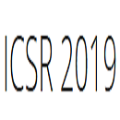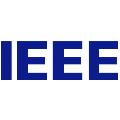CFP | International Conference on Social Robotics (ICSR 2018)

第10届国际社会机器人大会(ICSR 2018)汇聚了致力于推动人类与智能机器人互动以及将机器人融入社会结构的研究人员和行业实践者。
社会机器人和人工智能(AI)的结合必然会改变我们的家庭、工厂、医疗服务和交通等领域的现状。在可预见的未来,社会机器人和人工智能将有助于推动经济增长,并将成为新常态。ICSR 2018旨在促进AI模型和框架的开发、机器人应用以及进一步鼓励发明和创新的行为。论坛将探讨这些技术的潜力,并提出应对解决挑战和风险的见解。
会议欢迎在社会机器人和人工智能领域的科学技术和思想理论的原创贡献,包括:创新的想法和概念,新发现和改进,对构成社会机器人支柱的核心技术的最新基本进展,杰出的发展项目,美学设计、伦理和哲学方面的开创性工作,有关社会机器人的社会影响研究,社会机器人与人类的互动交流,以及它对我们社会的影响。
CALL FOR PAPERS
INTERNATIONAL CONFERENCE ON SOCIAL ROBOTICS (ICSR 2018)
I. AIM AND SCOPE
The conference welcomes original contributions describing technically rigorous scientific and philosophical advances in the area of social robotics and AI: innovative ideas and concepts, new discoveries and improvements, novel applications on the latest fundamental advances in the core technologies that form the backbone of social robotics, distinguished developmental projects, as well as seminal works in aesthetic design, ethics and philosophy, studies on social impact and influence pertaining to social robotics, and its interaction and communication with human beings and its social impact on our society.
II. THEMES
The topics of interest include, but are not limited to the following:
Affective and cognitive sciences for socially interactive robots
Context awareness, expectation, and intention understanding
Control architectures for social robotics
Human augmentation, rehabilitation, and medical robots
Interaction and collaboration among robots, humans, and environments
Personal robots for the home
Robot applications in education, entertainment, and gaming
Robot ethics in human society
Robots that can adapt to different users
Robots to assist the elderly and persons with disabilities
Robots with personality
Safety in robots working in human spaces
Socially assistive robots to improve quality of life
Social acceptance and impact in the society
Socially appealing design methodologies
III. BEST PAPER AWARD and BEST STUDENT PAPER AWARD
The ICSR 2018 Best Paper Award will be selected based on originality, contributions, quality of presentation, and scientific soundness of the work.
The ICSR 2018 Best Student Paper Award recognizes excellence in a paper presented at the Conference whose primary author is a student.
Visit our website for more information about eligibility, requirements, and application procedures for awards.
IV. WORKSHOPS
Participants are invited to hold a half day workshops and/or special sessions on topics relevant to social robotics.
V. COMPETITION
Social robot designs from practitioners from any discipline, and in any format, and designs, prototypes, performances or demos selected by the organizing committee will be invited for exhibition during the conference.
Ⅵ. EXHIBITIONS
Participants who would like to exhibit their relevant products during the conference site should submit a summary describing the demonstration.
Ⅶ. IMPORTANT DATES
Workshop proposal and Paper submission:
Aug 30, 2018 (Final extension)
Paper notification: Sept 22, 2018
Final camera-ready paper submission: Oct 7, 2018
Ⅷ. SUBMISSION OF PAPERS
Submissions must be made in the PDF format and follow the Springer LNCS/LNAI style for the layout. All papers will be refereed by the program committee. Full papers are limited to ten pages. Detailed instructions for paper submission are available on the conference website. LNCS style templates are available on the Springer LNCS website.
Ⅸ. WORKSHOPS AND SPECIAL SESSIONS
Participants are invited to hold a half day workshops and/or special sessions on topics relevant to social robotics. Proposals on work-shops and special sessions will be considered by the organizing committee.
For further information, please visit the ICSR 2018 conference website at
http://www.icsr2018.com/
Ⅹ. ORGANIZING COMMITTEE
General Chairs:
Shuzhi Sam Ge (National University of Singapore, Singapore)
John-John Cabibihan (Qatar University, Qatar)
Program Chairs:
Miguel Salichs (Universidad Carlos III Madrid, Spain)
Elizabeth Broadbent (University of Auckland, New Zealand)
Hongsheng He (Wichita State University, USA)
Publication Chairs:
Alan Wagner (Pennsylvania State University, USA)
Alvaro Castro (Universidad Carlos III Madrid, Spain)
Publicity Chairs:
Silvia Rossi (University of Naples Federico II, Italy)
Jose Carlos Castillo (Universidad Carlos III Madrid, Spain)
Yinlong Zhang (Chinese Academy of Sciences, China)
Ho Seok Ahn (University of Auckland, New Zealand)
Jianbo Su (Shanghai Jiao Tong University, China)
Workshop Chair:
Emilia Barakova (University of Technology Eindhoven, Netherland)
Chenguang Yang (South China University of Technology, China)
Competitions Chair:
Amit Kumar Pandey (SoftBank Robotics, France)
Ali Meghdari (Sharif University of Technology, Iran)
Interactive Session Chairs:
Wei He (University of Science and Technology Beijing, China)
Guido Herrmann (University of Bristol, U.K.)
Invited Session Chairs:
Yongsheng Ou (Chinese Academy of Sciences, China)
Jianbo Su (Shanghai Jiao Tong University, China)
Standard of Social Robotics Chairs:
Lianqing Liu (Shenyang Institute of Automation, Chinese Academy of Sciences, China)
Ⅺ. STANDING COMMITTEE
Oussama Khatib (Stanford University, USA)
Maja Mataric (University of Southern California, USA)
Tianmiao Wang (Beihang University, China)
Haizhou Li (A*Star, Singapore)
Jong Hwan Kim (Korea Advanced Institute of Science and Technology, Korea)
Paolo Dario (Scuola Superiore Sant'Anna, Italy)
Ronald C. Arkin (Georgia Institute of Technology, USA)
Yibin Li (Shandong University, China)
Ⅻ. INTERNATIONGAL ADVISORY BOARD
Qiang Huang (Beijing Institute of Technology, China)
Arvin Agah (The University of Kansas Lawrence, USA)
Caihua Xiong (Huazhong University of Science and Technology, China)
Fuchun Sun (Tsinghua University, China)
Yaonan Wang (Hunan University, China)
XIII. BOARD OF ASSOCIATE EDITORS
Bin Li (Qilu University of Technology, China)
Brian Scassellati (Yale University, USA)
Christoph Bartneck (Eindhoven University of Technology, Netherlands)
Dan Huang (Institute for Future, Qingdao University, China)
Dongsheng Guo (Huaqiao University, China)
Dongjie Zhao (Institute for Future, Qingdao University, China)
Dongxu Ji (Institute for Future, Qingdao University, China)
Dongyu Li (Harbin Insitute of Technology, China, and National University of Singa-pore, Singapore)
Fangwen Tu (Panasonic R&D Center Singapore, Singapore)
Fanyu Zeng (University of Electronic Science and Technology of China, China)
Gang Peng (Huazhong University of Science and Technology, China)
Han Wang (Nanyang Technological University, Singapore)
Hao Deng (Institute for Future, Qingdao University, China)
Henrik Scharfe (Aalbory University, Denmark)
Hui Feng (Wuhan University of Technology, China)
Jia Guo (Ocean University of China, China, and National University of Singapore, Singapore)
Jianting Fu (Chongqing Institute of Green Intelligence Technology, Chinese Academyof Sciences, China)
Jie Yang (Institute for Future, Qingdao University, China)
Jingyi Zheng (Institute for Future, Qingdao University, China)
Kevin Kok Wai Wong (Murdoch University, Australia)
Mary-Anne Williams (University of Technology, Australia)
Martin Smith (Middlesex University London, U.K.)
Matthias Scheutz (Indiana University Bloomington, India)
Mohammad Shidujaman (Tsinghua University, China)
Monica Nicolescu (University of Nevada, USA)
Pai Zheng (Institute for Future, Qingdao University, China)
Pan Wang (Institute for Future, Qingdao University, China)
Ping Li (Huaqiao University, China)
Reid Simmons (Carnegie Mellon University, USA)
Rui Jiang (National University of Singapore, Singapore)
Sheng Shawn Zhang (Institute for Future, Qingdao University, China)
Wanyue Jiang (Nanjing University of Aeronautics and Astronautics, China)
Xiangxia Wei (Institute for Future, Qingdao University, China)
Xiaomei Liu (Dyson Singapore, Singapore)
Xinghua Liu (Nanyang Technological University, Singapore, and Xi'an University of Tech-nology, China)
Xing Liu (Xi’an Jiaotong University, China, and National University of Singapore, Singapore)
Xuewei Mao (Institute for Future, Qingdao University, China)
Xuming Wang (Dalian Maritime University, China)
Yinhua Liu (Institute for Future, Qingdao University, China)
Yuze Huang (Institute for Future, Qingdao University, China)


推荐阅读













